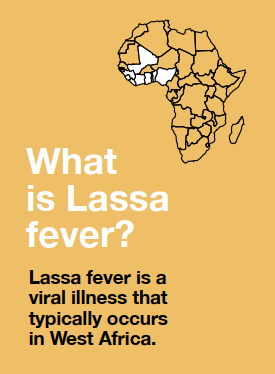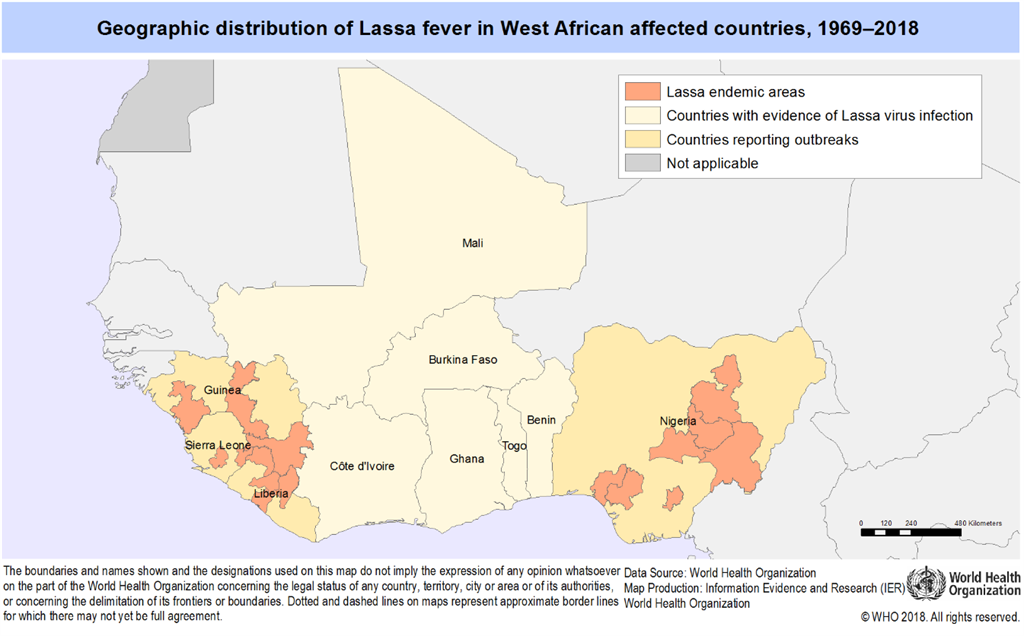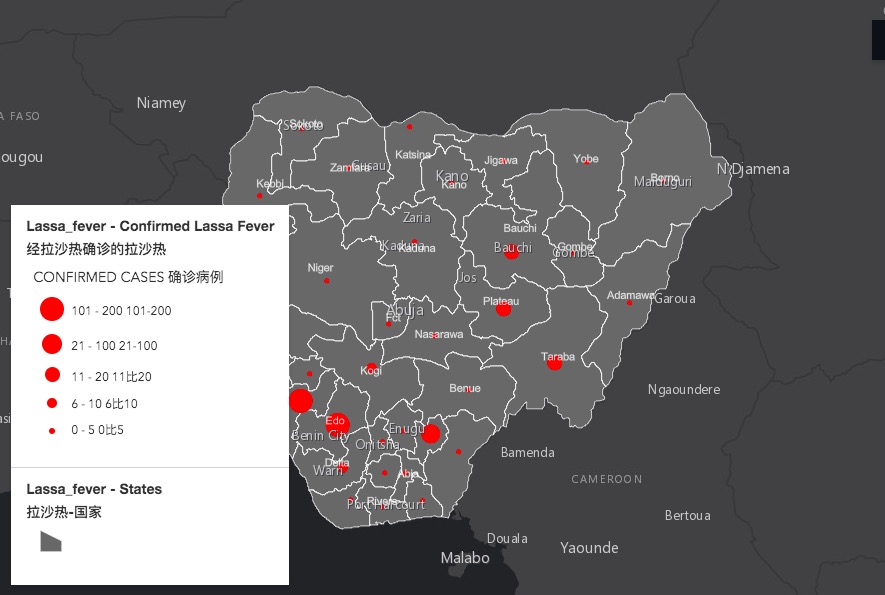深度报道 | 尼日利亚爆发沙拉热至今全记录
When: First case in Nigeria
 The virus was first discovered in 1969, from a case in the town of Lassa, Borno State, Nigeria [1] .
The virus was first discovered in 1969, from a case in the town of Lassa, Borno State, Nigeria [1] .
The story started with a missionary nurse Ms. Laura Wine, who was posted by the Church of the Brethren, USA, to a local hospital in Lassa town, southern region of the state.
She had retired from a nursing career in Chicago, and in Lassa, became the head of obstetrics at the Lassa Mission hospital. On her return leave to the USA, serious fever symptoms sets in.
Hamidu Gadzama was the attending nurse in the hospital where her illness was being managed. He treated her with prescriptions for the conventional fever. Things got worst and she was diagnosed to have an higher degree of "fever."
On the demand for health care, she was transferred to SIM/ECWA Evangelist hospital Jan Kwano, presently Bingham University Teaching Hospital.
Despite several health interventions, nothing changed. Her test results were taken for intensive laboratory analysis in the USA.
All efforts went down the drain, she died!. The prognosis of her disease made it was evident that the cause of her death was an communicable one.
What is Lassa fever?
Lassa fever, also known as Lassa hemorrhagic fever (LHF), is a type of viral hemorrhagic fever caused by the Lassa virus [2].
Lassa virus is a member of the Arenaviridae, a family of negative-sense, single stranded RNA viruses.
 Lassa fever is known to be endemic in west African countries like Nigeria, Sierra Leone, Liberia, Guinea, Mali Togo and Benin [3]
Lassa fever is known to be endemic in west African countries like Nigeria, Sierra Leone, Liberia, Guinea, Mali Togo and Benin [3]
Nigeria experienced it's first major outbreak in November 2015, in Bauchi State.
How is it transmitted?

The Lassa virus is transmitted to humans mainly through handling rats, food or house-hold items contaminated by rats' urine and faeces.
For the virus to spread, there must be a direct contact with body fluids of an infected person as well as contaminated bedding and clothing.
2020 Lassa fever cases in Nigeria
On the 24th January, 2020, The Nigeria Centre for Disease Control (NCDC) confirmed 195 cases and 29 deaths in 11 states [4].
In 2019, Lassa fever claimed more than 150 lives in Nigeria.
Most cases of the Lassa fever outbreak this year have been confirmed in: Ondo, Edo, Enugu, Ebonyi and plateau states.

Symptoms and Treatment
Common symptoms; headache, sore throat and body pain. Other high risk symptoms may include diarrhea, bleeding from the mouth or gastro-intestinal tract and low blood pressure.
Treatment of Lassa fever requires complete isolation of the patient so as to prevent further spread.
Currently, there is no vaccine for Lassa fever, but according to the World Health Organization (WHO), the antiviral drug ribavirin is an effective treatment for Lassa fever "if given early on in the course of the clinical illness."
Government's intervention
The Federal Government of Nigeria assured that it had strengthened surveillance, particularly at the nation’s five international airports and other entry points, against Coronavirus and other communicable diseases. Minister of Health, Dr. Osagie Ehanire, who stated this at a press conference in Abuja, confirmed that about 41 persons have died, out of 258 cases reported since the recent outbreak of Lassa Fever in the country [5].
He accused some “mischievous” people and states of exaggerating the Lassa Fever outbreak, thus increasing fear and tension among Nigerians. According to him, the situation was being controlled and the needed responses coordinated by the Nigeria Centre for Disease Control (NCDC) through the National Emergency Operation Centres (EOCs)